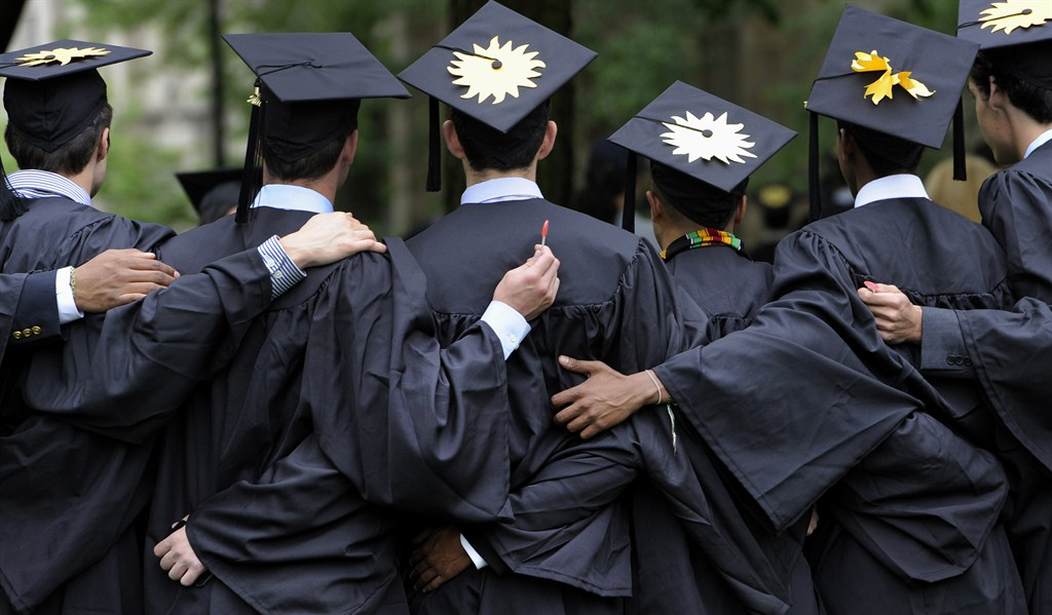Virtually every progressive political proposal focuses on a specific group of individuals without assessing the basic fairness of that proposal to the remainder of society. The discussion of forgiving a trillion dollars of student loans should be the cause célèbre.
If the United States were to seriously consider forgiving student loans, should not the United States simultaneously consider refunding all student loan payments with interest to all current and former student loan borrowers? In the name of fairness, those who repaid their student loans or portions of their student loans should not be in a worse economic position than those who borrowed and had their loans forgiven.
If the United States were to seriously consider forgiving both student loans and refunding prior student loan payments, should not the United States simultaneously consider refunding all college tuition payments? In the name of fairness, those who paid their college tuition should not be in a worse position than those who indirectly had their tuition paid through forgiven student loans?
Crazy, think about it in very simple terms.
Assume three couples graduate from college and all six individuals, post-graduation, have exactly the same income and each has a single child.
Couple number 1 spends the next eighteen years saving money to fund their child’s college years and when that magic date occurs, they have saved a sufficient amount to send their child to college X. Relative to Couples 2 & 3, Couple number 1 has lived in the least expensive housing for the past eighteen years and driven their cars to exhaustion.
Recommended
Couple number 2 believed that their child should work his way through school to understand the benefits of hard work. This child worked construction for two years while living at home after high school and also worked while in high school. When his magic date occurred, between his savings and his expected earnings during his college years, he will have a sufficient amount of funds to attend the same college as Couple number 1’s child. Couple number 2 has lived in higher quality housing than Couple number 1 and has driven nicer cars for the prior twenty years than couple number 1.
Couple number 3 lived large for eighteen years and wished their child a great rest of his life after high school graduation. Their child borrowed $200,000 for college.
If we are to reward responsible parenting, couple number 3’s child would be the last one in line for a forgiveness of debt. Forgiving college loans for Couple number 3’s child looks only to the borrower; forgotten is that this indirectly punishes Couples number 1 & 2 for not having their children borrow for college. In a deeply intellectual sense, anyone actually paying for their education would be paying a tax as opposed to tuition if everyone else was receiving their education for free. Not fair.
There are really two outrages when we unpack the “student loan crisis”.
The first outrage is that those who paid for college and/or repaid their college loans do not rise to the level of an after-thought. These responsible parents and borrowers would watch other borrowers be rewarded for their lack of payment. And very clearly, every mention of college loan forgiveness gives rise to attempting to defer every penny of interest and debt with the expectation that college loans will be reduced or forgiven. It also gives rise to all parents having their children borrow for college given the possibility that loans will be forgiven. It would be financially silly to pay for college if through loan issuance and forgiveness, the result will be free college.
The second outrage is that given the “student loan crisis”, the underlying issue of why student loans would be granted to students who are not planning to enter fields where there is a likelihood that they will be unable to repay the loans is not being addressed. Whether it be grants, reduction in funds available for student loans, requirements of community college for the first two years of college, the willingness to loan money to a borrower who is unlikely to repay the loan is, at best, unseemly. It is bad for the borrower and government lender. If the private sector were making most of these loans as opposed to the federal government, there would be hearings to assault the bankers for bad lending practices.
We are in a mess. As is so often the case, the culprit is the government’s continuing attempts to fill perceived needs without the slightest thought of the ultimate consequences to society of these actions. When we think about the failure of student loans, we next need to look at progressive’s thoughts about government owned banks. Yet another disaster in the waiting room.

























Join the conversation as a VIP Member